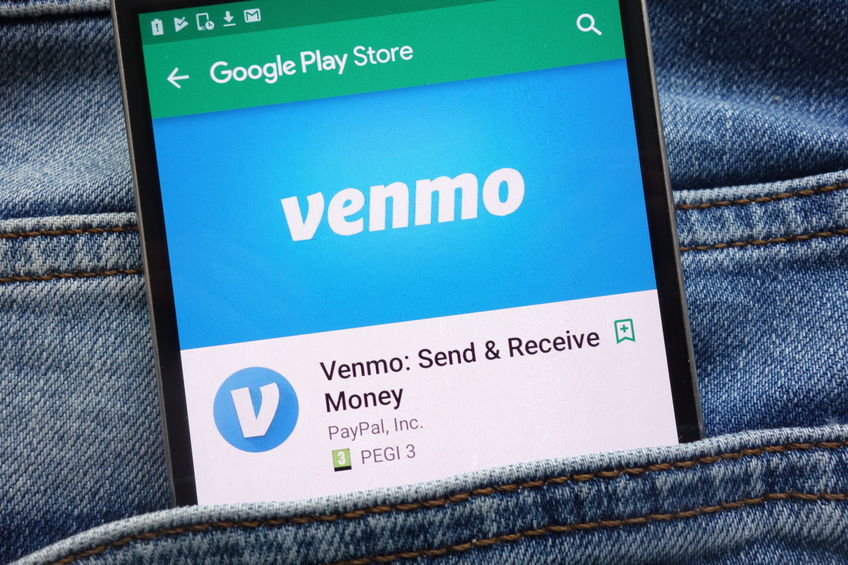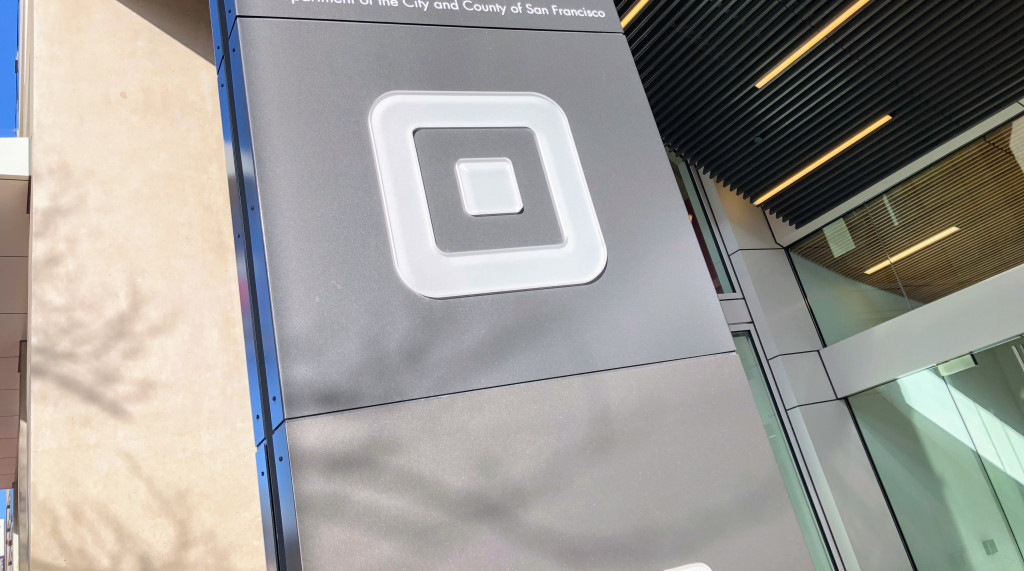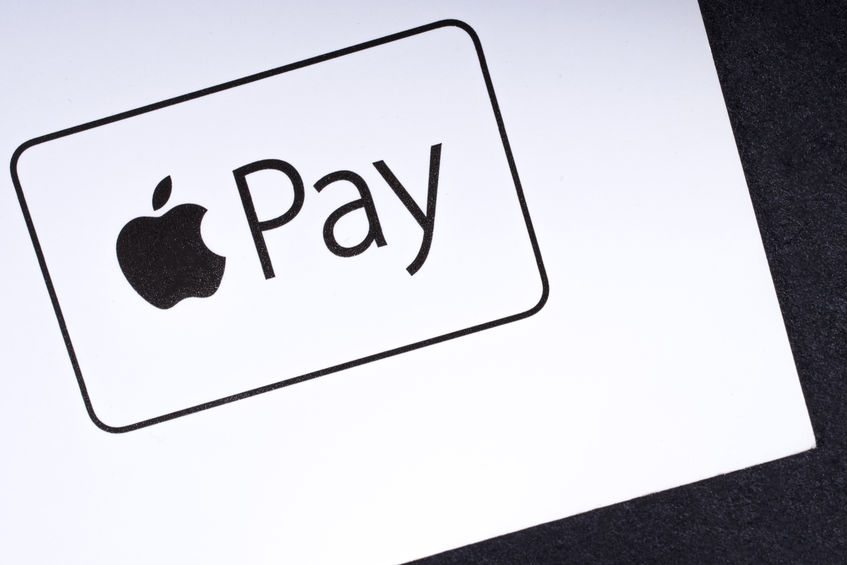payments
PayPal Has a Lot of Merchants and Venmo Is Adding a Boost
February 1, 2019 More than 21 million merchants accept PayPal to take advantage of the 246 million consumers who use it. That’s a lot of merchants to offer value-added products like PayPal Working Capital and invoicing services. But then there’s Venmo, a fast growing digital wallet that PayPal also owns that processed $19 billion in payment volume last quarter and is projected to handle $100 billion worth across all of 2019.
More than 21 million merchants accept PayPal to take advantage of the 246 million consumers who use it. That’s a lot of merchants to offer value-added products like PayPal Working Capital and invoicing services. But then there’s Venmo, a fast growing digital wallet that PayPal also owns that processed $19 billion in payment volume last quarter and is projected to handle $100 billion worth across all of 2019.
Although Venmo itself is not a profitable business yet, it has gone from generating almost zero revenue to hitting a $200 million revenue run rate by the end of 2018. And it’s bringing in new users thanks to a network effect. When a network effect is present, the value of a product or service increases according to the number of others using it.
PayPal CEO Dan Schulman said on the company’s earnings call on Thursday that PayPal and Venmo will probably attract another 33 million new active users in 2019, thanks in part to the network effect and “the virality of Venmo.”
Meanwhile, PayPal COO Bill Ready said on the same call that merchants tend to come to them directly for services like working capital loans rather than to online marketplaces like Shopify or Wix because oftentimes merchants sell across multiple marketplaces. “PayPal becomes the aggregation point for them to connect to each of those platforms,” he said.
Ingo Money QuickConnect Allows for Push-to-Card Payments
December 14, 2018
Yesterday, Ingo Money announced the launch of Ingo Money QuickConnect, a new solution that allows companies that issue payments – including loans – to disperse funds directly to a merchant’s debit card. Ingo Money has partnered with Visa Direct to facilitate these direct payments.
This is the official announcement for a product that has been in the works for over a year. OnDeck announced its partnership with Ingo Money last October, but didn’t start using it until it was ready earlier this year, according to an OnDeck spokesperson. So far, OnDeck only uses the Ingo Money QuickConnect service to provide same-day disbursements to their line of credit customers. The spokesperson said they have seen great demand among customers for receiving money instantly.
“Ingo Money QuickConnect allowed us to get to market faster than we ever believed possible and with minimal time, cost and hassle,” said Sam Verrill, OnDeck’s Director of Product Management. “The solution has thoughtfully solved for all the pain points and hurdles to deploying a new payment solution, making it quick and easy to begin delighting customers and cutting costs with digital real time disbursements.”
Chief Product Officer for Ingo Money Lisa McFarland told deBanked that OnDeck was their first client in the lending category, and that they now have a few other lending clients, but declined to mentioned which.
“What’s exciting about Ingo Money QuickConnect is that customers can access money the minute they need it,” McFarland said. “At night, on weekends and holidays.”
The Ingo Money QuickConnect solution is also being used in other ways, including insurance companies paying claims and child support payments where the government is an intermediary. Use in payment of airlines vouchers to customers and by the IRS to people who are owed money are also being considered, according to McFarland.
“We’ve heard time and again from customers that they need to deploy a push-to-card payment solution but are intimidated by the time and effort required,” said Ingo Money CEO Drew Edwards. “Ingo Money QuickConnect removes the burden and allows a company to almost immediately begin offering real-time payments through Visa Direct, while retaining the ability to easily expand the solution later to include payments to online wallets like PayPal and Amazon or even cash out Moneygram locations.”
Square Capital Loaned $405 Million in Q3
November 8, 2018 Square Capital originated more than 62,000 business loans for a total of $405M in Q3, up from $390M in the previous quarter, according to the company’s latest earnings report.
Square Capital originated more than 62,000 business loans for a total of $405M in Q3, up from $390M in the previous quarter, according to the company’s latest earnings report.
By contrast, OnDeck, a Square Capital competitor, reported loan originations of $648M for the quarter. Both companies find themselves facing new competition from a growing field of tech players like Shopify (who last quarter originated $76.4M in merchant cash advances).
Thanks to an early investment in Eventbrite, the online events company that went public in September, Square turned its regularly scheduled quarterly losses into a profit in Q3. On the company’s earnings call, Square CFO Sarah Friar said that the company would have had a $17 million loss if it weren’t for a windfall related to the IPO of Eventbrite.
The big news that Square CEO Jack Dorsey had to share on the earnings call was the introduction of Square Terminal, a portable, all-in-one payment device that prints receipts.
“People don’t want to use their personal device to accept payments,” Dorsey said of many small business owners.
Dorsey said that this device is essentially meant to replace “those black rectangular boxes,” referring to the ubiquitous credit card processing machines which he described as “dinosaurs.”
Another theme of the earnings call was Friar’s departure from Square. Friar announced in October that she will be taking the job of CEO at Nextdoor, a social network. Dorsey thanked Friar for her contribution to Square and in a tweet expressed sadness that she was leaving. He said that a search to replace Friar is currently underway.
Dorsey also expressed pleasure with the continued success of Square’s Cash app, a peer to peer payments app that he said allows the “underserved and unbanked” to transfer money.
“I’m excited [about] what we can build on top of it,” Dorsey said.
Stripe Becomes a Digital Credit Card Issuer
August 8, 2018 Stripe has recently started offering a new API, or programming feature, that allows its merchants to offer physical or virtual credit cards to their employees. The product, called “Issuing,” is still being tested and is currently by invitation only, although it does appear as an offering on the company’s website. Merchants can request an invitation.
Stripe has recently started offering a new API, or programming feature, that allows its merchants to offer physical or virtual credit cards to their employees. The product, called “Issuing,” is still being tested and is currently by invitation only, although it does appear as an offering on the company’s website. Merchants can request an invitation.
According to the website, creating a card is an easy three step process that involves providing identifying information about the cardholder, then literally creating the card (physical or virtual) and finally, activating it. Physical cards can be shipped either to the merchant or the cardholder, while virtual cards are available to use immediately.
The merchant can manage cards by creating restrictions, like maximum purchase amounts, charges can be disputed, and physical cards can have customizable designs, just like cards issued from a bank. However, Stripe is not a bank. Stripe did not respond in time for this story, but it is likely that the company has partnerships with companies that can underwrite and offer lines of credit to their customers. On the Stripe website, it indicates three of its financing partners: Funding Circle, Iwoca and Clearbanc.
Stripe is a payment platform that facilitates online payments. The company takes 2.9% plus 30 cents of every successful charge a merchant makes. Stripe customers are small business owners, but also include giant companies like Facebook and Target. Founded in 2011 by brothers John and Patrick Collison, Stripe is headquartered in San Francisco. It also has offices in Dublin, London, Paris, Singapore and Tokyo, and it employs more than 1,100 people.
Apple Pay is Closing in On PayPal
August 2, 2018 According to Apple’s quarterly earnings that were released on Tuesday, Apple Pay transactions tripled from last year at the same time to more than 1 billion transactions. CEO Tim Cook said during Apple’s recent earnings call that this is more than Square did in the last quarter and exceeded the number of mobile transactions via PayPal. PayPal, the industry leader, reported 2.3 billion transactions over the last quarter. This still puts them well ahead of Apple Pay, by 1.3 billion; but not as far ahead as last year, when PayPal led by almost 1.8 billion.
According to Apple’s quarterly earnings that were released on Tuesday, Apple Pay transactions tripled from last year at the same time to more than 1 billion transactions. CEO Tim Cook said during Apple’s recent earnings call that this is more than Square did in the last quarter and exceeded the number of mobile transactions via PayPal. PayPal, the industry leader, reported 2.3 billion transactions over the last quarter. This still puts them well ahead of Apple Pay, by 1.3 billion; but not as far ahead as last year, when PayPal led by almost 1.8 billion.
Apple also reported today that it hit a $1 trillion market cap. The success of Apple Pay is further confirmation that giant technology companies are also becoming fintech companies. Google has the Google Pay service and Facebook’s WhatsApp is rolling out a payment feature. To keep up with fintechs, last year, a group of the largest American banks (including Bank of America, Wells Fargo and Capital One) launched Zelle, a peer to peer payment service. So far, Zelle has proven to be a good idea.
According to eMarketer, a research firm, Zelle is expected to surpass Venmo this year in terms of users. With these expectations, Zelle will grow by more than 73% in the US, to 27.4 million users by the end of the year, outpacing Venmo (owned by PayPal), which should have 22.9 million users and Square Cash, which should have 9.5 million.
PayPal’s Actions Convey Continued Expansion of Lending Business
July 27, 2018PayPal announced its Q2 2018 earnings yesterday. Notably, total payment volume grew 27%, which is 1% higher than Q2 of last year. And the popular payment app Venmo, which is owned by PayPal, grew 78%, only slightly less than its growth of 80% from the last quarter. As expected by Wall Street analysts, revenue growth lagged total volume growth as Venmo is still largely unmonetized.
PayPal demonstrated continued commitment to its online lending division, PayPal Working Capital, when last month it made a significant investment in LendUp, a startup that offers loans to subprime consumers. This follows PayPal’s September 2017 acquisition of Swift Financial, for $183 million.
In yesterday’s Q2 earnings conference call, PayPal CEO Dan Schulman spoke about the company’s consumer lending division, PayPal Credit. He said that the company has strengthened its partnership with eBay by signing an agreement to extend its long-standing consumer financing offer to eBay’s marketplace.
“With this agreement,” Schulman said on the conference call, “eBay will continue to accept and promote PayPal Credit through 2025.”
As PayPal continues to grow both PayPal Credit and PayPal Working Capital, it does have the advantage of strong name recognition. After all, it started back in 1998 as one of the first major websites on the internet. To emphasize this, during the conference call, Schulman cited a recent ComScore study that reported that 52% of mobile consumers said they made more online purchases because PayPal was offered. And one-third of all PayPal mobile customers surveyed said they will abandon a purchase if PayPal is not offered as a checkout option.
Snapchat to Terminate Payment Service Snapcash (And its x-rated subculture?)
July 24, 2018 Snapchat will be terminating its payment service platform, Snapcash, on August 30. Launched in 2014, Snapcash allows users to send money to each other (via a cash app) in a fast and free way. Money goes to users’ bank accounts that are linked to their debit cards and the payment processing is handled by Square.
Snapchat will be terminating its payment service platform, Snapcash, on August 30. Launched in 2014, Snapcash allows users to send money to each other (via a cash app) in a fast and free way. Money goes to users’ bank accounts that are linked to their debit cards and the payment processing is handled by Square.
“Snapcash was our first product created in partnership with another company – Square,” a Snapchat spokesperson told Techcrunch in a statement. “We’re thankful for all the Snapchatters who used Snapcash for the last four years and for Square’s partnership!”
Snapchat’s decision to discontinue the payment service may come because of steep competition from Venmo, PayPal, Zelle and Square Cash, which all specialize in payments. But Snapcash may also be a liability for the company since it’s reportedly been used for X-rated activities. When Snapcash was first introduced, a story on Motherboard suggested that it would enhance Snapchat’s lingering subculture of amateur pornography. By the following year The New York Times reported that although the payment activity attributed to such pursuits was small, both strippers and adult video stars (male & female) were indeed using the service to charge users for personalized photos.
Although Square’s partnership with Snapchat will be coming to an end, Square made it clear in a statement to Techcrunch that its peer to peer Square Cash product is still alive and well with more than 7 million monthly customers.
It is unclear if the phase-out of Snapcash will result in job cuts at the company. But Snap Inc., which owns Snapchat, already laid off about 200 employees in March of this year. The company went public last year on the New York Stock Exchange as SNAP. Snap Inc. also has a hardware division called Spectacles, which sells sunglasses with a camera in it. According to a Cheddar story today, the chief of Spectacles, Mark Randall, has left Snap Inc. to start his own company.
Snap Inc. was founded by in 2011 by CEO Evan Spiegal, Bobby Murphy and Reggie Brown. The company is headquartered in Los Angeles.
Lendr Launches New Business Debit Card
April 9, 2018 Chicago-based Lendr is launching a new business debit card program, according to an announcement the company made at LenditFintech.
Chicago-based Lendr is launching a new business debit card program, according to an announcement the company made at LenditFintech.
This will give them the ability to fund business owners in real-time via an instant access virtual Mastercard followed up with a traditional plastic card. This system is different than pushing funds to a merchant’s existing bank debit card, which fellow online lenders Kabbage and LendingPoint announced at LendIt.
“The idea is to offer a product that makes access to capital as easy as ‘1-2-3,’” CEO Tim Roach told deBanked. “We will have the ability to deposit funds on the Mastercard in real time, making the process seamless for our clients.”





























